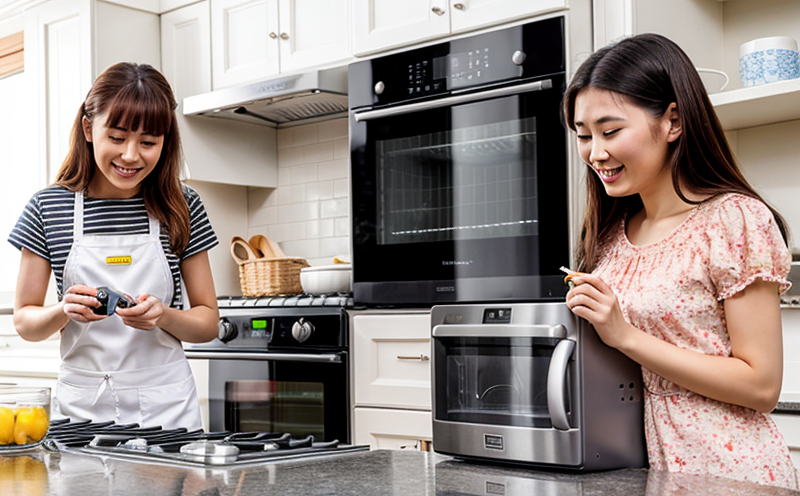IEC 60335 2 97 Safety Testing for Floor Treatment Machines
The International Electrotechnical Commission (IEC) standard IEC 60335-2-97 is specifically designed to ensure the safety of household electrical appliances, including floor treatment machines like vacuum cleaners. This stringent testing protocol aims to safeguard users and prevent potential hazards associated with these devices.
The scope of IEC 60335-2-97 encompasses various types of floor treatment machines that are intended for use in domestic environments. These include upright vacuums, cylinder vacuums, canister vacuums, and other similar appliances. The standard covers a range of safety aspects such as electrical insulation, mechanical stability, emission control, noise levels, and the operation of filters.
The testing process is divided into multiple stages to ensure comprehensive coverage. Initially, the device undergoes an inspection for any visible defects or malfunctions that could compromise its safe use. Following this, the vacuum cleaner is subjected to a series of electrical tests aimed at verifying insulation resistance, grounding continuity, and leakage current. These parameters are critical in determining whether the appliance meets the necessary safety thresholds.
Another crucial aspect involves assessing the mechanical stability and durability of the vacuum cleaner. This includes evaluating how well it withstands various stress conditions such as tipping over or being subjected to sudden impacts. The noise level is also measured, ensuring that it falls within acceptable limits to avoid unnecessary discomfort for users.
The performance of filters and other components is another focal point during testing. Filters play a vital role in maintaining air quality by trapping dirt particles efficiently. Their efficiency must be tested according to specified criteria laid out in the standard. Additionally, tests are conducted on the overall cleaning effectiveness, ensuring that the vacuum cleaner performs its intended function effectively.
Compliance with IEC 60335-2-97 is essential for manufacturers aiming to meet global safety regulations and obtain market access. By adhering to this standard, companies can demonstrate their commitment to producing safe, reliable products that protect consumers from potential risks. This not only enhances brand reputation but also fosters trust among customers.
For quality managers, compliance officers, R&D engineers, and procurement teams responsible for ensuring product safety and regulatory adherence, understanding the nuances of IEC 60335-2-97 is paramount. It provides a roadmap for developing robust testing procedures that align with international standards.
Why It Matters
The importance of complying with IEC 60335-2-97 cannot be overstated. Compliance ensures that vacuum cleaners and similar floor treatment machines are safe for use in residential settings, thereby protecting consumers from electrical shocks or other hazards. Here’s why it matters:
- Consumer Safety: Ensures that the device operates without posing a risk to users.
- Regulatory Compliance: Adherence to international standards helps manufacturers comply with various country-specific regulations.
- Better Brand Reputation: Demonstrating commitment to safety can enhance brand image and customer trust.
- Market Access: Meeting these stringent requirements opens up opportunities for exporting products globally.
By investing in thorough testing according to IEC 60335-2-97, manufacturers can significantly reduce the likelihood of product recalls or legal issues resulting from non-compliance. This proactive approach contributes to long-term sustainability and profitability within the industry.
Applied Standards
The primary standard for IEC 60335-2-97 is IEC 60335-2-97: Safety of household and similar electrical appliances - Part 2-97: Floor cleaning appliances. This document specifies the requirements and test procedures applicable to floor treatment machines used in domestic environments. Additionally, it integrates references from other relevant international standards such as ISO 10536 for noise measurement and EN 60288 concerning electromagnetic compatibility.
The standard covers a wide array of tests that are critical for ensuring product safety. These include:
- Insulation Resistance: Measuring the resistance between live parts and accessible conductive parts or enclosures to prevent electric shock.
- Grounding Continuity: Ensuring proper grounding to dissipate excess current safely.
- Leakage Current: Limiting the amount of current that can flow through a person in contact with the equipment.
- Mechanical Stability: Assessing how well the appliance remains stable under various conditions, including tipping over or being subjected to impacts.
- Noise Measurement: Ensuring the noise generated by the vacuum cleaner does not exceed specified limits for comfort and health reasons.
- Cleaning Effectiveness: Evaluating how effectively the machine cleans surfaces based on predefined criteria.
The integration of these standards ensures that floor treatment machines meet rigorous safety benchmarks, providing peace of mind to consumers while maintaining high-quality production practices.
Benefits
- Enhanced Consumer Safety: Ensures that the device operates safely and effectively without posing any risks to users.
- Increased Market Access: Compliance with international standards opens up opportunities for exporting products globally.
- Improved Brand Reputation: Demonstrating commitment to safety enhances brand image and fosters customer trust.
- Avoidance of Legal Issues: Meeting these stringent requirements reduces the likelihood of product recalls or legal disputes related to non-compliance.
- Proactive Approach: Investing in thorough testing according to IEC 60335-2-97 contributes to long-term sustainability and profitability within the industry.
- Regulatory Compliance: Adherence to international standards helps manufacturers comply with various country-specific regulations.
By ensuring compliance with these stringent safety measures, manufacturers can significantly enhance their products’ reliability and marketability. This not only protects consumers but also safeguards the manufacturer’s reputation and market position.





